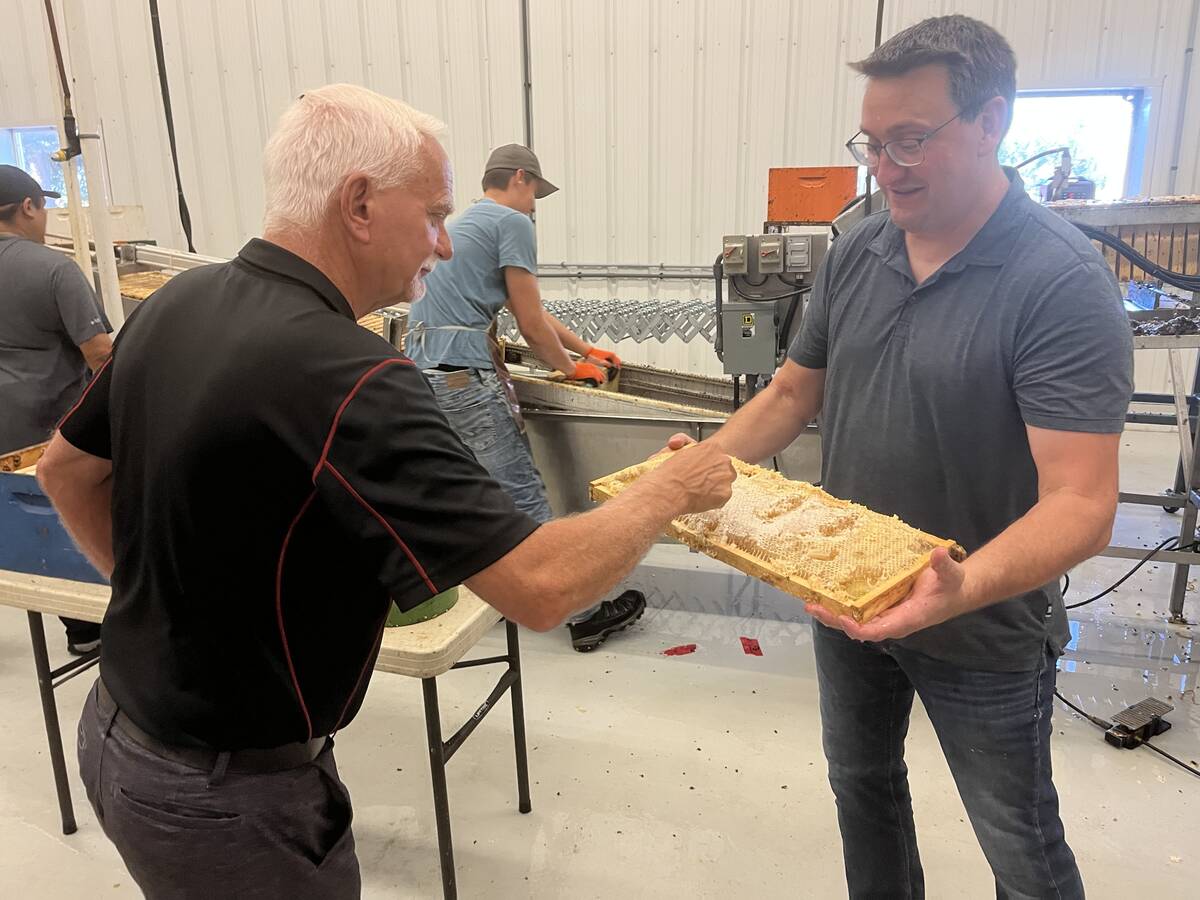Living with less fear has been the bonus of going to asthma camp, says
14-year-old Meghan Parks of MacDowall, Sask.
This past summer’s five-day camp at Lake Diefenbaker made her feel more
confident about living with her breathing condition on her parents’
white-tailed deer farm. She can pet the deer and romp with the dogs.
“This was my first time going to camp. I was so nervous. … They had a
polar bear swim at 6 a.m. I did it.”
Read Also

Alberta honey business ‘thrives’ despite bumpy beginnings
Thrive Honey showcases its honey production in market where Alberta produces 40 per cent of all honey produced in the country
Her mother, Janet, said the camp taught the kids to push themselves
further than they thought they could go.
Meghan agreed she and others who have asthma tend to worry about their
condition and may sometimes hold back from activities.
At the same time, Janet said, kids want to deny their asthma and don’t
always want to be reminded to take their medicated inhaler with them
everywhere.
“They got across to Meghan, who used to say, ‘oh Mom.’ They got across
that you can have fun even with asthma.”
Asthma is a condition triggered by dust, smoke, pet dander, mould or
other air particles that cause lung airways to tighten, restricting the
amount of oxygen a person can inhale. The Saskatchewan Lung Association
said it is the most common chronic disease affecting children and is a
reality for 16-21 percent of the province’s students.
The association runs the one-week summer camp for 45 children aged
seven to 13 to teach them, their parents and health-care workers how to
manage asthma.
Meghan said the campers were in groups of four with two leaders who
stayed with them at night to provide reassurance that help was near if
one had an asthma attack.
The 20 counsellors included students from the University of
Saskatchewan’s nursing, pharmacy and physical therapy colleges.
During the week, the leaders taught the children to identify and avoid
their asthma triggers, the correct use of medications and healthy
eating habits.
Meghan learned at camp that she had been using her daily inhaler
incorrectly. She was taking a puff, then breathing it out quickly,
whereas the correct method is to hold the medicated air in for 10
seconds before expelling it.
The camp theme – Hawaiian Survivor – was popular with the kids, who all
got Polynesian names and bright
orange T-shirts emblazoned with “outplay, outlast, outlearn.”
Janet said after one of Meghan’s early attacks the hospital’s advice
was depressing – “Go home and rip out the rugs, wash your sheets, live
in a sterile world. … It did help but no one was having any fun.”
Meghan’s asthma is now under control. She has had it since she was born
and she understands she won’t grow out of it, but it can be calmed.
She has a twice-daily inhaler for prevention and another when she does
activities such as Irish dancing. Her mom drives her into Saskatoon
weekly for the lessons and to dance competitions.
“I have to work that much more,” than the other dancers, Meghan said.
Although Meghan and her brother, who also has asthma, are now
home-schooled by Janet, the teenager said schools need to be more
informed about asthma.
After one attack when running the track, Meghan was not allowed to take
gym class any more. That was an overreaction, she said.
The camp taught her that she does not have a unique condition.
“There’s a lot more people who have it and more people you can talk to.”
Next summer Meghan will be back at camp. She is too old to be a camper
but she got along so well that she has been asked to return to train as
a counsellor.
For more information about next year’s asthma camp, phone the lung
association at 306-343-9511 or see the website at www.asthma camp.org.
















